Mercedes Guinea: "We need a better democratically organised EU"
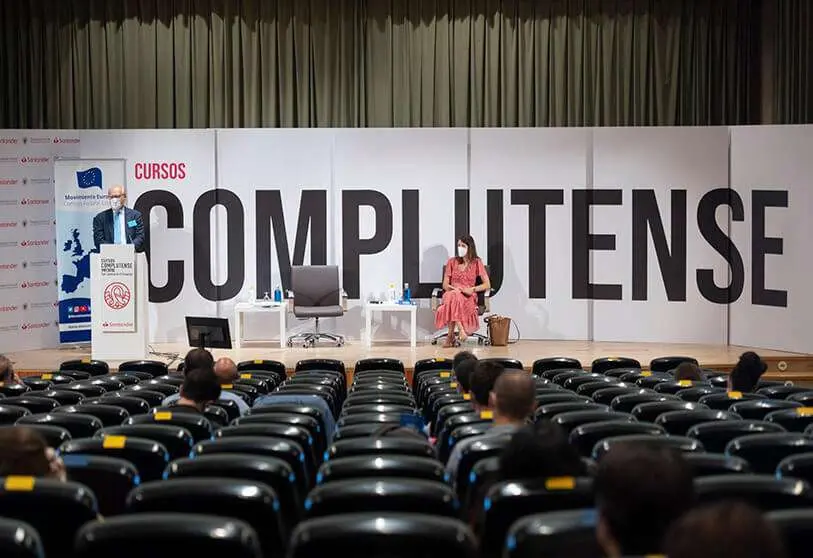
The Conference on the Future of Europe is presenting a seminar at the El Escorial summer courses, which will attempt to provide answers to the future of the European Union in terms of foreign policy. Under the title "Strengthening the international role of the European Union at the Conference on the Future of Europe", the president of the Spanish Federal Council of the European Movement (CFEME) and professor Francisco Aldecoa opened the presentation by stating that "this course brings together citizens and organised civil society with European institutions to reflect on and propose measures to set the course of European foreign policy".
In this way, the aim of the course is to strengthen the EU's international role in a multipolar world in which the great powers maintain a very marked influence and visibility in foreign policy, taking as an example the new scenario posed by the strong position that China has taken as an influential country in foreign policy, together with the United States and Russia.
According to Aldecoa, "this course is 'suigéneris' because it is being held within the framework of the initiative of the Spanish Federal Council of the European Movement." The aim is to reflect, to think together about the subject that is planned and to reach conclusions on how to strengthen the role of the EU.
As the Spanish representative of Spanish civil society in his capacity as President of the European Movement, Aldecoa said that "we thought it was time to add a little something to the course, which was not only to talk about how to strengthen the EU's international role, but also to make proposals in my capacity as a representative of civil society".
In this line, he affirms that "the Federal Council has prepared 30 events to analyse in the coming months and among them we have presented this one, which has a special significance. Here are 30 professors who belong to the area of international relations and who have been working together for many years on this issue; it is an opportunity to reflect, think together and make proposals".
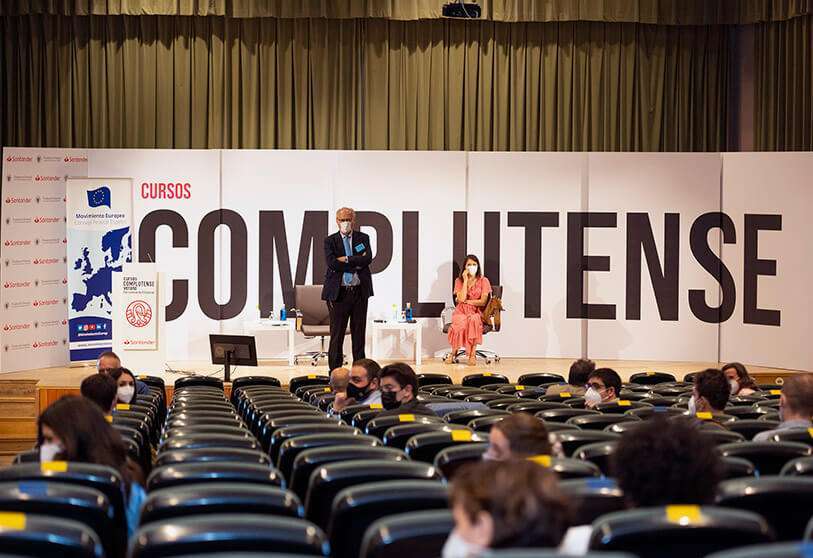
Aldecoa also emphasised that this seminar is "a meeting place where we have asked the professors to stay so that together we can reflect and make proposals, where we want young people to collaborate in this reflection and make proposals from civil society and citizens".
"We want to make proposals and make a collective reflection. The idea is for us to think together about what proposals can be made, some according to their speciality and others as citizens who believe that the EU is lacking," he said.
With regard to the current situation in world society as a result of the spread of the COVID pandemic, the president affirms that this is "a particularly important moment as a result of COVID, very important steps have been taken, specifically the 'recovery' in terms of the new generations fund, the doubling of the budget, the measures to combat the pandemic and the vaccines, so we must make concrete proposals to legally shape it to the new circumstances. With this course we will try to do our bit for this project."
On the first day, Mercedes Guinea, lecturer in International Relations at the Complutense University of Madrid, presented a section focused on "European foreign action in the work of the Conference on the Future of Europe".
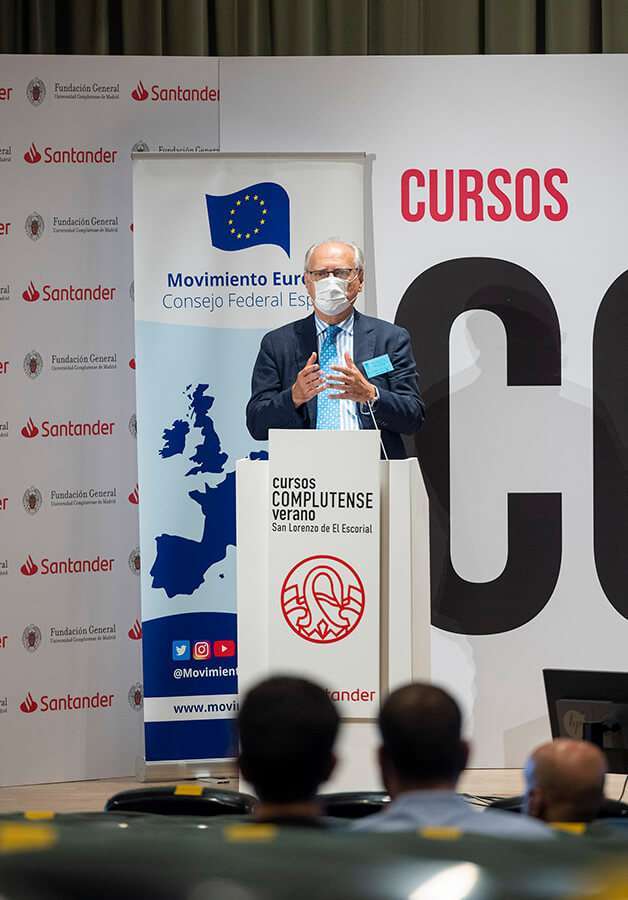
Along these lines, the academic stated that "what the EU wants to be is a world based on values. I am concerned that we are promoting the outlook based on ideals, not realities. Values have always acted as a glue between member states, each member state has a very different vision of foreign policy, and for the Conference to produce results, it is necessary to start from reality". In this context, it "encourages dialogues and conversations at such a varied level that it is difficult to draw operational conclusions".
In this respect, Guinea regrets that "the institutions do not seem to be interested. One wonders why member states are not inclined to major reforms. Fundamentally it is because we are in COVID and we don't know how we are going to overcome it". He adds that "the context is not favourable, but there is a very strong public demand. The pandemic has made us aware of our fragility, our vulnerabilities. The EU has been much more valued after the pandemic.
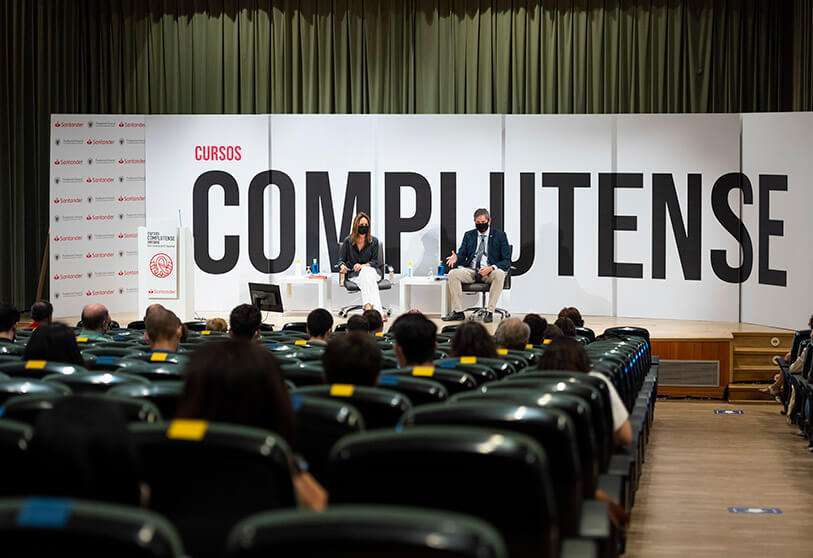
The professor alluded to the celebration of the course, stating that "we should leave here with viable proposals, this exercise requires us to take a leap forward, to focus on what can be and is viable". For this reason, it is necessary to realise a "mobilising political project that is based on a reason that responds to a need and a crisis structure".
With regard to the marked loss of influence that the European Union has suffered in the international arena, the researcher states that "the EU's radical loss of presence and power in the world is due to the fact that we Europeans are increasingly irrelevant in demographic and commercial terms. However, this can be countered if we unite together," she says. In addition, he points out that through "inter-institutional leadership and leadership with citizens, we must try through the Conference to achieve the legitimisation of citizenship".
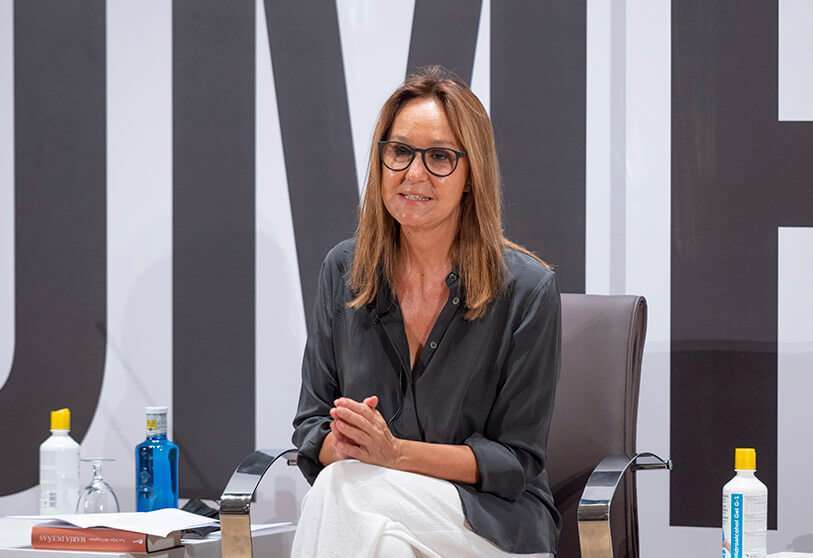
In view of this situation, Guinea proposes exploring the avenues of enhanced cooperation. "If we know that one of the main problems is that not all member states have the same interests, let us use a policy of states in which countries that have the same interests join together". He also argues for the need to "decide by qualified majority, to respect the integrity and legal binding in which there is a commitment to respect and comply". In wars, the objective "is not to win, it is to control", which is why "Europe must look towards a horizon in which it does not try to overpower but rather to mark an influence on the rest of the world and promote an important position".
To end the first session, the writer and lecturer in Philosophy at the University of Murcia María Dueñas took part in the seminar to talk about her new book 'Sira', a novel set in the post-war period after the Second World War, which features Sira, a woman who collaborates with the British secret services.

"I wanted to write a novel that looked back at part of my own family's universe. My only aim was to look back at my sentimental memory, the Spanish protectorate in Morocco that lasted throughout the last decades of the 20th century," she said. "Since I was a child, I still remember my mother talking about Morocco, a world where tens of thousands of Spaniards arrived, and my new novel Sira returns to the Morocco of those golden years of international splendour."
"The air of Tangiers, the way of feeling and even of sunbathing, all those little details helped me to create atmospheres and characters". Dueñas goes on to say that "after Time Between the Seams came other novels, my novel 'Mission Oblivion' goes back to the memories of the past of those Republicans who were exiled, I talk about the Franciscan missions in California and I try to recover the Spain of the 1950s".

In this sense, Dueñas vindicates the role of women in her novels after stating that "history has been told from the point of view of men, Spanish immigrants were always men and women appeared as notes, in the end women were always hidden in the rearguard and I became interested in that part of history, they were the great silenced ones, the protagonists of my next book 'Las Hijas del Capitán'".
To conclude, the writer said that this course "is a magnificent forum". She also remembers with special affection her creative process in the writing of her novel 'Las Hijas de Capitán' because of "all the real events behind it, I wanted to write fiction, but in a great way it is a book that goes beyond fiction". It is a novel that constitutes "a tribute to the women who resist when the winds blow against them and a tribute to all those brave people who lived and live the adventure, often epic and almost always uncertain, of emigration".








